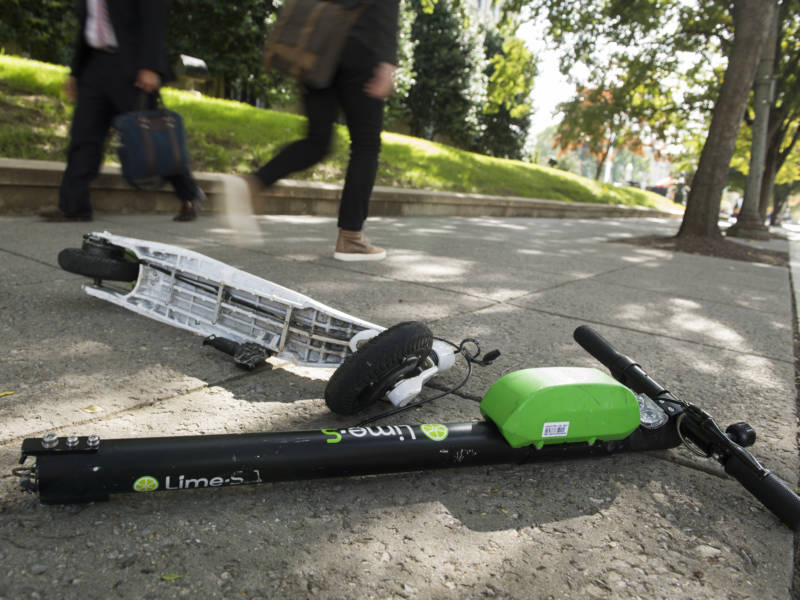In the rush to expand, companies have been using scooters that were not designed for commercial use. (Lime has had to recall theirs multiple times). Last week, Bird unveiled a new scooter, Bird One, which it claims will last ten months. Reports suggest that would be as much as ten times longer than their initial fleet lasted.
Bird launched in late 2017 in Santa Monica, and there's since been a rush of companies into the global scooter market, including Uber, Lyft, and Ford. Even if scooter companies survive price wars and can start making a buck, there's a natural limit to how high their prices can go. If you really love scooting everywhere, you can buy a $300-$600 scooter yourself and save money.
Scooter NIMBYs
Like Uber, AirBnB, and other sharing revolutionaries, scooter companies have already faced political backlash in reliably outraged cities like San Francisco and Los Angeles. They've proven annoying, even infuriating, to voters—and a regulatory clampdown has begun amid rising safety concerns. The city of Austin and the CDC recently released a study that found there were about 20 injuries per 100,000 scooter rides, and that half of these were head injuries that could have been avoided if riders were wearing helmets. Such findings could increase calls for helmet regulations, which could damage the convenience that is critical to the hop-on-and-hop-off scooter-sharing business.
Part of the political appeal of shareable scooters is the idea that they're good for the environment, but that's still debatable. If motorized scooters are replacing cars, then it's clearly a win. But they may be mainly replacing biking and walking, which makes them a loss—especially in markets where the power used to charge these scooters comes from dirty power plants. A recent survey in Santa Monica, Bird's home, suggests that scooters there are replacing a good portion of car trips, but there is still no rigorous evidence to back claims that flooding cities with shareable scooters reduces carbon emissions. There is, however, evidence that to suggest it's wasteful because these scooters are dying so quickly.
Unicorn Stampede
Scootermania isn't just about scooters. It's about this entire bubbly era of tech. Tech watchers have come to call startups worth over a billion a "unicorn." At first it was because they were hard to find. Today, there are four times more unicorns than there were in 2013. Last year, VC funding for private companies hit a high of $131 billion, which is past the heights of the 1990s that ended in a crash in nominal terms and close to it in real ones. The percentage of companies going public—despite being unprofitable—has hit a similar peak. Uber, which remains unprofitable, became one of those companies last week.
The money being poured into money-losing companies is driven by an ideology—sometimes called "blitzscaling"—that values growth over profit. It's a belief that winners take all because of dynamics like "network effects," a notion that a good or service becomes more valuable to users as more people use it and that achieving scale is important because competitors won't be able to catch up. (Think Google vs other search engines). But it's not really evident that the scooter business is winner-take-all, especially because spotting them on the street and downloading a free app is relatively easy. Even the CEO of Bird seems to acknowledge this, telling The Information that he doesn't believe market share is important for scooter profitability. Instead, he says, what's important is to actually stop losing money every time they buy and rent out a scooter.
Venture capitalists are now subsidizing consumers with billions and billions a year with the hope that the money-losing companies they back will become the next Google or Facebook. It has a bonus: you can now rent a scooter for a couple bucks courtesy of rich investors.
Did you enjoy this newsletter? Well, it looks even better in your inbox! You can sign up here.
Copyright 2019 NPR. To see more, visit NPR.9(MDAxOTAwOTE4MDEyMTkxMDAzNjczZDljZA004))

9(MDAxOTAwOTE4MDEyMTkxMDAzNjczZDljZA004))

